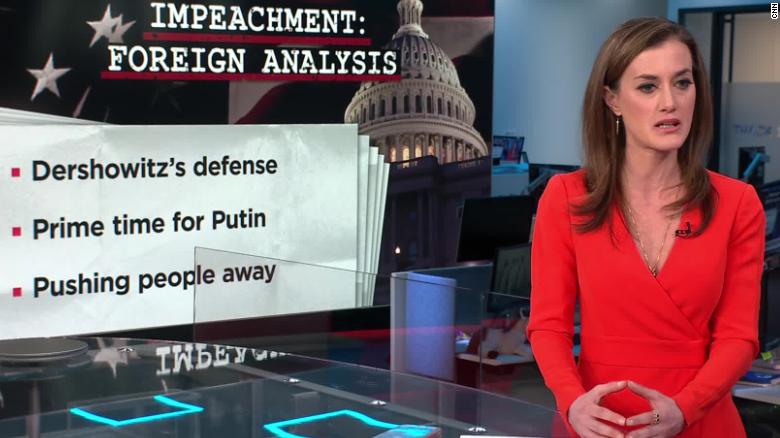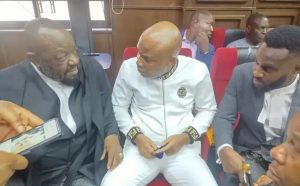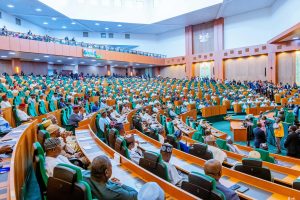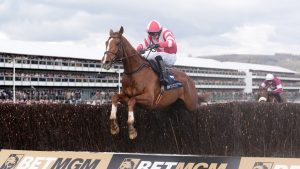Trump’s team thought Ukraine was an easy mark. It was a bad miscalculation

US President Donald Trump’s acolytes felt perhaps that Ukraine — whose name means “borderland,” and whose loss of the definite article just three decades ago began its post-Soviet nationhood — was an easy place for a shakedown. Addled by corruption and poverty, it may have seemed accustomed — even open — to explicit acts of what some would later call bribery. A pushover.As Trump’s impeachment trial begins Tuesday — launched after a months-long pressure campaign to get Ukraine to investigate a political rival — it’s obvious this was a glaring miscalculation.First was the cynicism. Ukrainians are used to being screwed over by power, especially by Moscow — their former imperial master reluctant always to surrender their fiefdoms. Even Trump’s own national security advisor at the time, John Bolton, once reportedly referred to the push for Ukraine to investigate former Vice President Joe Biden and his son as a “drug deal.” And it was pushed on a novice Ukrainian president whose election marked an extraordinary electoral break with a corrupt past of oligarchs, and the same cannibalistic political elite that had run the country into the ground during its recent independence.Yes, President Volodymyr Zelensky had a billionaire backer during his election campaign. But he’s so far avoided obvious traces of fealty to Igor Kolomoisky, and the usual spoils of Ukraine’s political elite, preferring to maintain his neophyte image, addressing voters through a live Instagram feed as he sweats on a treadmill.Imagine this is your first real interaction with the world’s only superpower: its commander-in-chief trying — on the presidential hotline — to persuade you to investigate his political rival’s son. In exchange you get US military aid you thought you already had, and that you existentially need to fight off an overbearing, invading neighbor (one that is very chummy with the guy in White House on the other end of the line). Even in Kiev — whose name you can’t even spell without showing where you stand over decades of Soviet abuse — that was a pretty low blow.It was also amateur. Corruption in the former Soviet Union is not a walk-on experience. You don’t just blunder in with a suitcase of cash and leave 10 minutes later, the deal sealed with a handshake. It is deeply local, about simmering allegiances, family loathings and old enemies, and often so complex it becomes impenetrable even to insiders. Foreigners usually lack any grasp of these sensitivities, and are — with Rudy Giuliani’s conduct in Kiev a case in point here — a bad choice of co-conspirator as they bumble around your capital.Ukraine’s recent hellish past has left it inured to amateur drug dealers. Trump’s impeachment trial gets underway just shy of the 15th anniversary of the end of Ukraine’s Orange Revolution. On January 23rd 2005, Viktor Yushchenko was sworn in as president. He was the candidate you recall who suffered facial scarring after being mysteriously poisoned, and then led peaceful street protests that vanquished the pro-Russia candidate.The Orange Revolution marked the first peaceful “colored revolution” that faced down attempts by Moscow to keep control of a former Soviet state. Since then, Ukraine has been through a lot more than a poisoned president — more than most countries could stand.Yushchenko was mired in corruption fast, and Ukraine eventually swung back towards a pro-Russian candidate, with Viktor Yanukovych bumbling back to power in 2010. He swung the pendulum a little too far towards Moscow in 2014, stepping back from a deal with the European Union and sparking huge street protests. These were violent, even more so when riot police with AK-47s began gunning down protesters armed with only wooden shields and eventually hunting rifles, in the massacre on Maidan Square in Kiev.What followed was its second revolution in a decade. Yanukovich fled to Russia, and ordinary Ukrainians picked over his vacant dacha, laden with riches like a golden loaf of bread and an ostrich farm, which they refused to steal because, as they told me, “that was what he did” to them.Ukraine was then invaded twice by an angry Russia — first in Crimea, and then in Donetsk. The world responded with sanctions, but no real military support. Instead, Ukraine’s tiny, under-equipped, Moscow-infiltrated army pieced itself back together again, and kicked the separatists out of towns like Slovyansk. Moscow had to send in its proper troops to take strategic places like Debaltseve in 2015, before the war sank into its current ugly, febrile stalemate. Some 13,000 people died, many more were displaced, and the country’s industrial heartland in the east was disabled, perhaps permanently.In short, the Trump team’s pitch presumed that familiarity with corruption had left Ukraine unsophisticated with it; that a ghastly 15-year struggle for independence and the end of post-Soviet murk meant that an inexperienced president, who had only ever played politics in a fictional TV series, would just roll over and investigate Hunter Biden on demand.If you need further evidence the Trump team were shopping in the wrong neighborhood, compare the reactions of Americans to Ukrainians on being exposed. Most Ukrainian officials have simply disappeared, rarely being doorstepped by reporters and offering little more dirt to ladle onto the mess, Zelensky saying almost nothing about it. Trump’s acolytes could almost not stop talking for a while, with Trump’s personal attorney, Rudy Giuliani, even raising the dark matter of an “insurance” policy he had somewhere, somehow. Try also to feel the disbelief of Kiev’s restaurant clientele if they had realized they had just seen a US ambassador talking to Trump on a cell phone in public about potential investigations. Try to imagine the reaction of ordinary Ukrainians, who have lived for decades with the possibility that their phones are tapped by the KGB and its successors, on learning that Trump’s distantly associated bagmen were casually texting each other about surveillance on the top US diplomat there. It would beggar their belief.The art of corruption in post-Soviet countries is to pretend that it couldn’t possibly exist; that only your government salary and former prowess as a businessman mean you can afford to send your son to Eton and house your mistress above Central Park. These Americans were just a comedy troupe, bringing squirting roses to a corruption masterclass.And so it is perhaps fitting that — as Trump’s trial gets under way — the US military aid still flows. Zelensky is still president, seemingly able to watch this bullet fly past him. Ukrainians are left asking: what was all that? before returning to their real quotidian woes.And the only pertinent investigation we have seen opened by Ukraine? One into the alleged surveillance of the US Ambassador who fought back, and who Trump seemed to have removed: Marie Yovanovitch, whose parents fled the Soviets and the Nazis, who grew up speaking Russian and became an American citizen at the age of 18.Ukraine was meant to be an easy mark, but just spat the drug deal back out.







